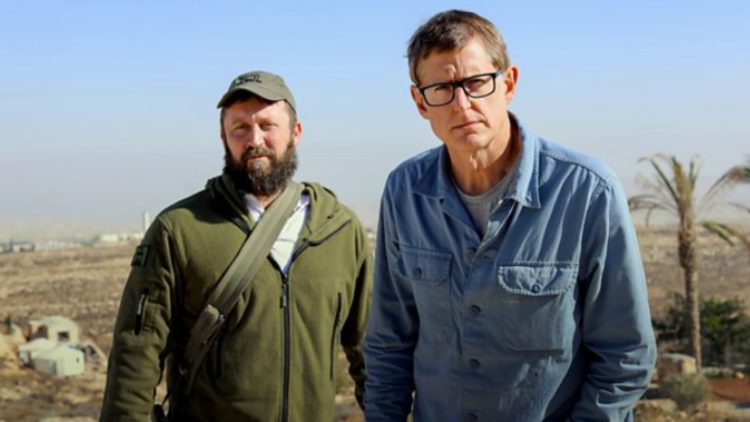Louis Theroux has come a long way from his early days of charming, awkward interviews with quirky subjects. In The Settlers, he confronts a far grimmer topic, shedding light on life in the West Bank and the controversial Israeli settlers living there.
🏠 Settling in the West Bank: A Grim Overview
Theroux first visited Israeli settlers in the Palestinian territories in 2011. Fast forward 12 years, and the situation is even more troubling. Back then, the settlers seemed like outliers. Now, they’re deeply entrenched in Israeli politics, with figures like Itamar Ben-Gvir, the current national security minister, speaking to crowds of settlers.
“Welcome to Judea,” says settler Ari Abramowitz, greeting Theroux at his home – a property that’s illegal under international law. Abramowitz is armed, and the settlement is guarded by the Israeli military. For him, this land belongs to Israel, and he doesn’t believe Palestinians have any claim to it.
⚖️ An Ideology of Absolutes
For Abramowitz and many settlers, the land’s ownership isn’t up for debate. He views the Bible as their land deed, rejecting any notion of Palestinian identity. This unwavering stance is echoed throughout the documentary, as Theroux encounters a recurring theme: the settlers’ belief that the land is theirs, and no one else’s.
The film doesn’t build to big revelations but instead reveals an unsettling consistency – the settlers’ views are fixed, and their opposition to Palestinians and international law is absolute.
💬 “We Do What We Want, And Netanyahu Can’t Say Otherwise”
Daniella Weiss, a key figure in the settler movement, offers a candid view of Israeli politics. She claims that while Netanyahu supports the settlers’ cause, he can’t openly acknowledge it. This subtle admission confirms what’s long suspected – that Israeli policies align with the settlers’ goals, despite their violations of the Geneva Conventions.
⏳ The Palestinians’ Struggle
The documentary also highlights the everyday struggles Palestinians face. Theroux visits Hebron, where IDF soldiers make life unbearable for locals with endless checkpoints and harassment. The goal? To make life so difficult that Palestinians leave in despair.
Theroux captures these moments with his characteristic empathy, allowing Palestinian voices to be heard amidst the tension and violence. But even when he raises the idea of a two-state solution, the settlers show no interest. Their world is one where only their narrative matters.
🎯 The Documentary’s Impact
In the final moments of The Settlers, Theroux has a telling interaction at a West Bank checkpoint, where an IDF soldier asks how long he plans to stay in Israel. It’s a slip that reveals a chilling truth – to some, the occupation of this land is already a done deal.
Theroux’s skill lies in drawing out these moments of accidental honesty. His quiet, non-threatening approach continues to be his biggest strength, even as the stakes grow higher.
🧠 A Changing Louis Theroux
Theroux’s journey as a documentary maker is evident in The Settlers. He’s evolved from the playful, often humorous interviewer of his early days to someone willing to dive into deeply complex and even dangerous topics. His handling of the settlers and their ideologies isn’t about mockery – it’s about understanding the gravity of the situation.
While his early work might have focused on the absurd, today, Theroux tackles extremism and conflict with a new level of seriousness. In The Settlers, he highlights a situation that feels like an endless, tragic loop, but his approach brings it into sharp focus for audiences willing to look beyond the surface.
You can watch it here.
You may also like: Trump’s Time magazine interview lampooned – here’s why







